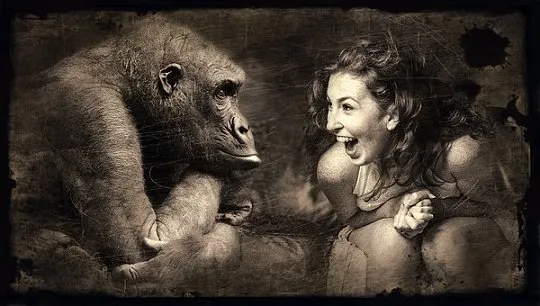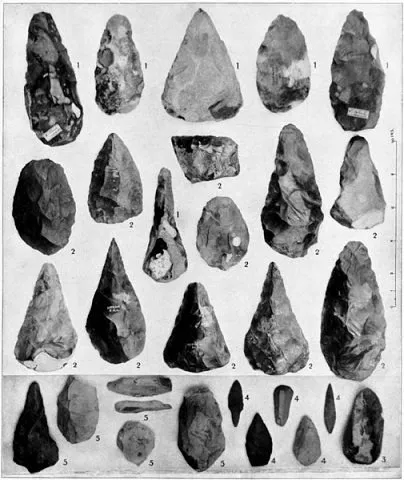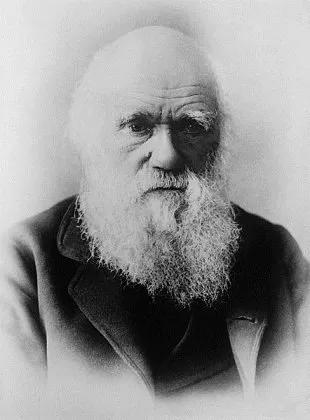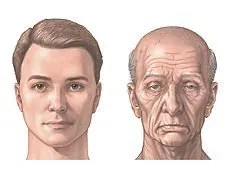Since the inception of this evolution series, one thing has been common; and that is the sole purpose of evolution - which is to ensure the survival of species. In the last episode, we considered the Darwinian model of evolution; which is generally accepted as the basis of evolution because of the assumption of the "natural selection". But I would not have you ignorant of the fact that; even though evolution is meant to ensure the adaptation and survival of species, there are dark sides of evolution, of which the Darwinian model might have side-lined from the outside world. This is the reason I tell people that evolution is not a "tarred-road-scenario", but the one that involves some undulating terrains. To have a holistic view of the Darwinian model, here's a recapitulation from the last episode:
There has been a popular belief that the Charles Darwin's theory of evolution; "evolution by natural selection" is the basis of which the others hinge on - and no wonder the assertion under this has been "the survival of the best fitted". But looking at this holistically, did Darwin expressly mean the human aspect of evolution when he proposed that theory? Here's a little shocker for you: Charles Darwin proposed this theory in the book; Origin of Species that he published in the year 1859, but the fossils of one of the earliest discovered hominins; the Java man (also called Homo erectus erectus, which is one of the subspecies of the Homo erectus - The Upright Man) was discovered in 1891 [ref]. That means; the earliest discovery of hominins post-dated the Darwinian theory of natural selection, so how do we think that Darwin was expressly referring to the human evolution when he proposed the theory? But then, looking at another of his book; "The Descent of Man", he expressly asserted that the modern human has an evolutionary descent from the ancient African Apes. How amazing, this assertion was made without laying hold on any fossils from any hominin specie whatsoever... Pretty interesting huh?
You can get the fuller details here.
INTRODUCTION
From the point man moved with the idea of excavating sites in search of missing and matching fossils, the knowledge of how and what we evolved from started to become relatively clearer. There is no disproving to the fact that the extant modern humans shared a common ancestry with the ancestors of the modern day Apes. But behind the scene, there are things that happened, and we are about to bust those things in this episode. We will dive deep into the hinter part of evolution that you may not like; and that is the dark side of evolution. Length Alert: If you'll be able to survive the length of this post, you would begin to see evolution from a different perspective. Alright guys, join me as we evolve together in this episode.

We would start from a very soft ground before going into the depths beyond. The first question for discourse is - "Is aging part of the natural selection process?"
AGING CUM EVOLUTION
Let us consider the core purpose of evolution; from the general perspective, it is a series of adaptative changes within the life of an organism (usually in response to certain alterations within the organism's immediate environment) which are passed on to subsequent generations to ensure the survival and preservation of a particular species. That is the reason it seemed like the humans in this extant form have successfully conquered the evolution of the hominin species, because, I mean, we have survived through thick and thin of evolution. But then, if evolution is to ensure our survival, what is the purpose of aging? Is aging a tool in the hands of evolution? And remember this, the ultimate destination of aging is mortality. That is why people grow, age, and die. But death as a concept; in the real sense of it; has not obeyed the law of evolution, because it does not ensure the survival of species.
Looking at the average life expectancy of the present day humans, and according to world bank data, this has been kept at 71.5years. Which means, senescence and dying is almost inevitable as humans in this era. But looking at this holistically, before this present era, life expectancy has fluctuated here and there - ups and downs and whatnot; and even at some point in the Chinese history, it was told that a particular Acupuncturist, Yogi, and Pseudo-doctor; Cuie Venze; lived to be well over 300years, and these claims has been held strongly by the Qin dynasty (of course, Oral Tradition is still a valid source of history among the three recognized sources, which are; "Written record, Oral Tradition, and Archeology"), but he died anyway. So I ask again; if evolution was meant to keep us alive, what makes us to die?
Considering this fact; some evolutionary biologists; the likes of Dr J.B.S Haldane and Prof Peter Medewar have come up with a postulation that aging has; itself; evolved, because the natural selection proposed by Darwin has been seen to be almost too inefficient to handle the adaptability, fitness, functions, and survival of species over time [ref]. That means; even though aging may not be an effective tool in the hands of evolution, it is still needed to keep the sanity of the entire earth. Imagine if "aging" was kept at a constant, and every of the hominins that ever lived are still alive, how will the earth look like? But not just that; if organism never ages and dies (or even goes into extinction), how would they have evolved into the next generation? - Maybe they would just live like the damn hydra that doesn't age noticeably.
For long, the concept of aging, as it relates to evolution, has remained in the dark zone. Though we are not sure whether or not the future human species (Homo sapiens futuris) would evolve to defy aging (senescence), but more sure thing would be that they would definitely figure out ways to be more adaptable to their environment. But beyond aging, there is another dark aspect of evolution that we would be looking at. Okay, fine, I know we have evolved and survived through time, but does it mean we are superior to the species that didn't? For example; in the case of the Neanderthals, were they inferior to us? This leads us to the concept of supremacism.

EVOLUTION AND SUPREMACISM
Literally, the term "supremacism" is used to indicate that a certain class or family is superior when compared to others. Putting this together to the concept of evolution; it infers that as species evolve into different subspecies, they would have different features and attributes, and also different survival instincts, and these factors would place them as either inferior or superior to other subspecies. And the surest way; according to the Darwinian proposition of natural selection; to judge for supremacism is by the survival and adaptation of a particular species. So by inference; we were more superior to the Neanderthals. This is just like evolutionary racism.
But really, from fossil analysis, the Neanderthals might have beaten us in a number of features. First of all, their physical strength would have been far greater than ours. From their fossil bones that revealed dense massive bones (which would also indicate large muscles around the biceps and triceps region), and a much lower center of gravity than us (which would give them more stability) - as indicated by the coverture of their hip bones. That means; if we had any chance at battle to face them, they would have beaten the hell out of us. So were we better than them to have survived through? Well, we all know that evolution is not majorly dependent on physical strength.
Okay what of mental strength? From findings, the Neanderthals' cranial cavity has been comparable to ours, or even slightly bigger than ours (of course, the volume and mass of our brain has been reducing in the last couple of decades [ref] - though technology is a culprit in this). If they had a slightly bigger brain than us, that means; they might have had more mental strength, and that could explain why they were seen to control more advanced toolkits, even more advanced than the early Homo sapiens sapiens they co-existed with (and some of these tools were dug alongside their fossils, and are still very much around). And, oh yes! I have told you that the Homo sapiens neanderthalensis and the Homo sapiens sapiens did co-exist at some point. So don't think that they evolved into us. But there is also a possibility of a crossbreed between the Neanderthals and some sapiens to form you; yes you. So you could be a hybrid. I talked about this in the previous episodes. So if the Neanderthals could command such an advanced toolkits as seen below, do you still think we were more superior than them?

With a stronger body framework and a larger brain size, the neanderthals still didn't make it as an independent distinct specie to this present time (except for some crossbreeds), but the Homo sapiens sapiens did. This is to show you that the brain size and whatnot is not necessarily an evolutionary parameters, but the usage of the brain. The Neanderthals were more or less stereotypically straitjacketed to performing just a monotonous activity, but the Homo sapiens sapiens evolved with agility, and that could explain why they were best fitted for survival; in affirmation to the Darwinian "survival-of-the-best-fitted" proposition. But will you call this supremacism?
Does evolutionary supremacism still exist? Remember the hypothesis I cited in episode 10; "Multiregional hypothesis" - which means; the different human race we see today were independently evolved from different species of hominins - the black Africans evolving from the Homo erectus erectus found in Africa, the Asians evolving from the Homo erectus pekinesis from China, and whatnot. So if we were evolved differently, that means the superclass would be entirely different, and that also means that one subspecie would be inferior or superior to another subspecie - but does this prove a point that any of the races has a fairer chance of surviving into the future Homo sapiens futuris? Well, though there is lack of theoretical framework to ascertain that, but you should bear this in mind; not every of the hominin species evolved and formed part of the evolutionary tree of the modern man (some were just side arms, or died out). In the same way, we shouldn't expect every of the extant modern humans to evolve into the future humans - some would just be side arms too. I know this is the part of evolution we may not like, but facts must be told.

FINAL WORDS
The Darwinian model of evolution has been such that has found acceptability in the concept of evolution. But even at that, there are places that have been kept in the dark zone. Like this; evolution is meant to ensure our adaptability, sustenance, continuity, and survival right? Then what is "aging" ensuring, if not death? We've seen the purpose of aging as it relates to evolution. And also, another concept was brought from the dark zone, and that is "supremacism" - which showed how different subspecies of organisms (hominins; in this context) have been differentiated from each other as either being inferior or superior. I'm sure you have now had a broader knowledge of evolution. Until I come your way again; keep evolving.
Thanks for reading
References for further reading:
- theory of aging - Mutation accumulation
- Natural selection and adaptation of species.pdf
- The descent of man - By charles Darwin.pdf
- Charles Darwin's theory of evolution
- Darwinian model and the controversy
- Comparison of the brain of Homo neanderthalensis and the sapiens
- Ancestral hominid species
- Overview of the evolution of hominins


gif by @foundation
